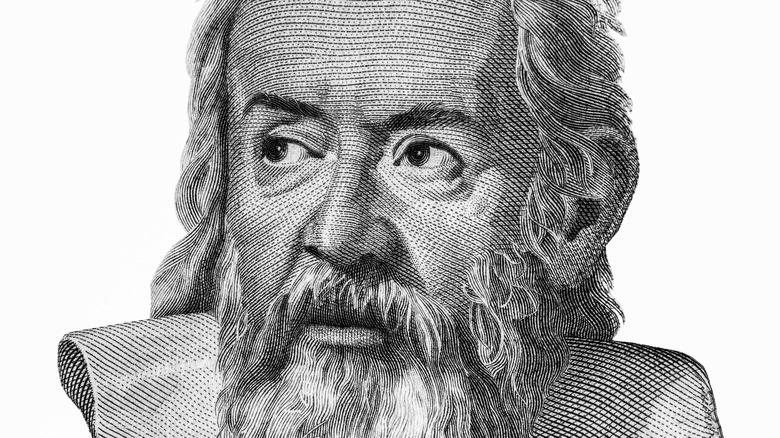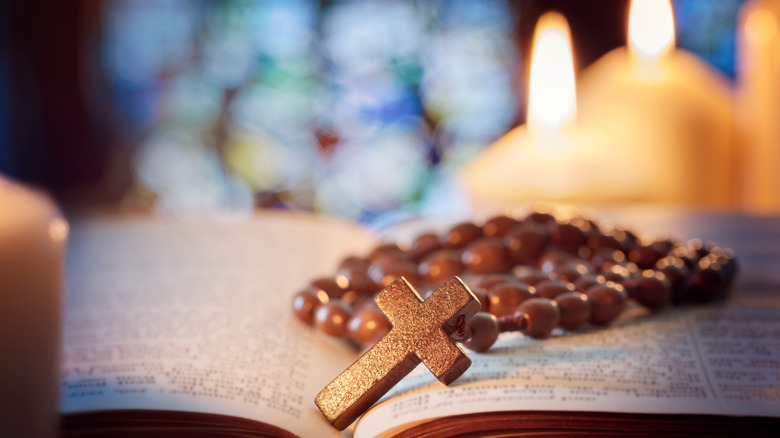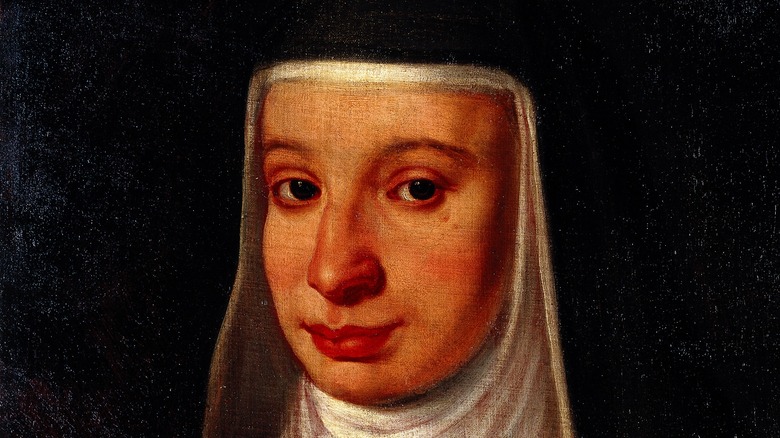Did Galileo Have Any Children?
The 17th-century scientist and mathematician Galileo Galilei broke a lot of new ground in the field of astronomy, but who was the man behind the telescope? Galileo is principally remembered for arguing in favor of Copernicus' theory that the sun, not the Earth, is the center of our solar system (via History). Galileo was explicitly warned by the Catholic Church not to publicize his views on this matter, but he went ahead and did it anyway. Threatened with all manner of grisly tortures by inquisitors, he was forced to write a retraction and sentenced to house arrest for the rest of his life.
A man not afraid to cause a scandal, Galileo had an unorthodox personal life as well, maintaining an out-of-wedlock relationship with a Venetian lady named Marina Gamba, who gave him three children. Although Galileo does not appear on the children's birth records — "born of fornication," in the official language of the day (via Linda Hall Library) — we nonetheless have plenty of evidence he took good care of them while he was alive (via The Galileo Project).
We know a great deal about Galileo's elder daughter in particular — born Virginia, but renamed Suor Maria Celeste. She was the subject of a popular book, 1999's "Galileo's Daughter: A Historical Memoir of Science, Faith, and Love" (excerpted by The New York Times). In the book, author Dava Sobel used the 124 surviving letters exchanged between father and daughter as fascinating evidence of their close relationship.
Behind abbey walls
Perhaps surprisingly, while Galileo was being investigated by the church for heresy, his daughters were busy working for it, having been shipped off to become nuns at the Convent of San Matteo in Arcetri when they were still small. Galileo has often been held up as a hero by critics of religion — the darling of both enlightenment wit Voltaire (via History) and agitator against the powerful, German playwright Bertolt Brecht (via The New Yorker).
Nonetheless, some have argued that the warm relationship between Galileo and his eldest daughter suggests that he did not personally see a contradiction between the Catholic faith and his scientific discoveries (via Scientific American) — and neither did she. The women who ran Maria's convent, on the other hand, seem to have begged to differ, burning the letters Maria received from her father after her death, perhaps to avoid the taint of infamy (via "Galileo's Daughter" at The New York Times).
It is also less clear how Galileo's two other children may have felt about him. Sobel speculates that Galileo's younger daughter, Arcangela, who is mentioned in Maria's letters in passing, may have been a troubled person who abused alcohol. Galileo's son, on the other hand, a musician named Vincenzo (via the Galileo Project), is known to have fought with his father over money, although not, as far as we know, over religion (via Museo Galileo). Vincenzo came through in the end, maintaining a close relationship with his father when he reached old age.
If you or anyone you know needs help with addiction issues, help is available. Visit the Substance Abuse and Mental Health Services Administration website or contact SAMHSA's National Helpline at 1-800-662-HELP (4357).
Like father, like daughter
Maria Celeste (above) is the most studied of Galileo's three children. Like Galileo, Maria was extremely bright, and her proud father once bragged that she was "A woman of exquisite mind ... " (from "Galileo's Daughter," via The New York Times). It appears to have been no mean boast, either; Maria had an inquisitive mind, and at one point in her letters, she appears to have requested a look at Galileo's famous telescope (via the Linda Hall library). She took a great interest in medicine, in particular, working as the convent's apothecary. Her writing style has also been praised for its skillful complexity (via Scientific American) and Maria regularly helped Galileo with his letters, including those sent to important dignitaries throughout Europe.
Sadly, Maria's life was no less difficult than her father's. Her letters describe a life of poverty and illness, and some of the nuns appear to have been subject to sexual abuse. Maria died young — before her father — in 1634 (via The Galileo Project). Some of Maria's letters to her father are posted at the Galileo Project online.


